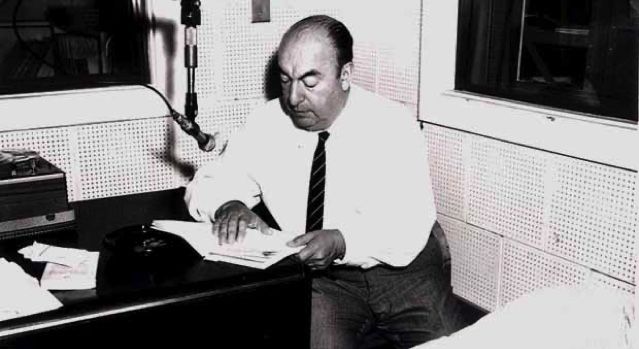
The Best Pablo Neruda Poems: 5 of His Classic Works
If you want to read one of the world’s best poets, Pablo Neruda is the perfect place to start. Start with five of the best Pablo Neruda poems to get a taste of his work and style.
 Who Was Pablo Neruda?
Who Was Pablo Neruda?
Pablo Neruda (July 12, 1904–September 23, 1973) is recognized as one of the great 20th century poets. Neruda’s life was dominated by poetry, politics, diplomacy and temporary exile from his native Chile.
In 1971, Neruda was the recipient of the Nobel Prize for Literature. “A poet is at the same time a force for solidarity and for solitude,” Neruda stated in his Nobel Prize acceptance speech.
Neruda wrote nearly 3,500 poems in a wide range of genres: historical epics, passionate love poems, distinctive odes (lyric poems that address a particular subject), political manifestos, surrealist poems, and a prose autobiography.
Another great Latin American writer, Frederico Garcia Lorca, described Neruda in 1934: “And I tell you that you should open yourselves to hearing an authentic poet, of the kind whose bodily senses were shaped in a world that is not our own and that few people are able to perceive. A poet closer to death than to philosophy, closer to pain than to intelligence, closer to blood than ink.”
The Best Pablo Neruda Poems
These are, in my opinion, five of his best poems out of his large collection of works.
Book Of Questions
Tell me, is the rose naked
Why do trees conceal
the splendor of their roots?
Who hears the regrets
of the thieving automobile?
Is there anything in the world sadder
than a train standing in the rain?
Body of a Woman, White Hills, White Thighs
(excerpt)
Body of a woman, white hills, white thighs,
when you surrender, you stretch out like the world.
My body, savage and peasant, undermines you
and makes a son leap in the bottom of the earth.
I was lonely as a tunnel. Birds flew from me.
And night invaded me with her powerful army.
To survive I forged you like a weapon,
like an arrow for my bow, or a stone for my sling.
Only Death
(excerpt)
There are cemeteries that are lonely,
graves full of bones that do not make a sound,
the heart moving through a tunnel,
in it darkness, darkness, darkness,
like a shipwreck we die going into ourselves,
as though we were drowning inside our hearts,
as though we lived falling out of the skin into the soul.
The Celestial Poets
(excerpt)
What did you do, you Gideans,
intellectualizers, Rilkeans,
mystifiers, false existential
sorcerers, surrealist
butterflies incandescent
in the tomb, Europhile
cadavers in fashion,
pale worms in the capitalist
cheese, what did you do
confronted with the reign of anguish,
in the face of this dark human being,
the kicked-around dignity,
this head immersed
in manure, this essence
of coarse and trampled lives?
In Salvador, Death
(excerpt)
In Salvador, death still patrols.
The blood of dead campesinos
has not dried, it does not dry with time,
the rain does not wipe it off the roads.
One Hundred Love Sonnets: XVII
(excerpt)
I don’t love you as if you were a rose of salt, topaz,
or arrow of carnations that propagate fire:
I love you as one loves certain obscure things,
secretly, between the shadow and the soul.


 Who Was Pablo Neruda?
Who Was Pablo Neruda?










